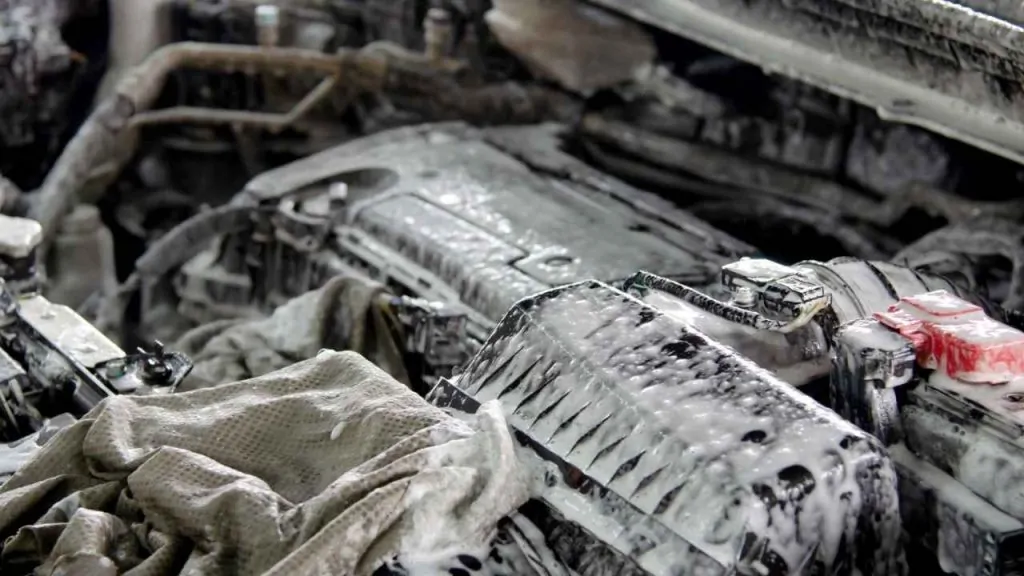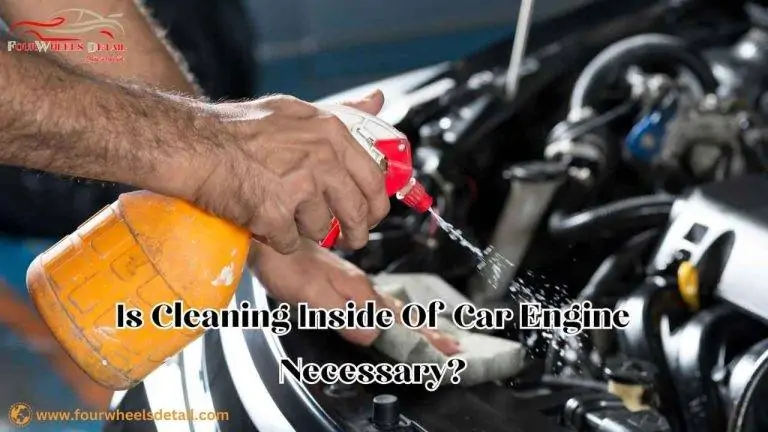Cleaning inside of a car engine not only boosts performance but can also extend engine life and improve fuel economy by up to 10% due to efficient combustion. It reduces emissions and makes it easier to spot leaks and worn parts early, potentially saving costly repairs. Carbon cleaning can improve fuel economy and overall engine performance. Regular engine maintenance can enhance resale value and safety, making it essential for long-term vehicle health. Discover why engine cleanliness is key to a smoother, greener, and safer drive.
Table of Contents
ToggleWhy Clean Your Car Engine?
1. Aesthetics and Resale Value
- A clean engine bay looks well-maintained and can make a positive impression, especially if you plan on selling your car.
- Potential buyers or even dealerships tend to favor cars that appear to be cared for, which can slightly improve resale value.
2. Early Detection of Issues
- When the engine bay is free from grime, leaks from oil, coolant, or other fluids become much easier to spot.
- Detecting these issues early on can help prevent more serious, costly repairs.
3. Improved Cooling Efficiency
- Built-up dirt and grime can restrict airflow in the engine bay, affecting cooling efficiency.
- A clean engine bay supports better airflow, helping maintain optimal temperature and ensuring consistent performance.
Potential Risks of Engine Cleaning
1. Water Damage
- Water or cleaning solutions can infiltrate sensitive components, especially if high-pressure hoses are used, which may cause short circuits and electrical issues.
2. Damage to Sensitive Components
- Certain chemicals or high-pressure methods can harm parts like sensors, wiring, and connectors. Using a soft brush and low-pressure water reduces this risk.
3. Warranty Issues
- Some manufacturers might void the warranty if they believe that engine cleaning contributed to damage, so it’s essential to follow safe methods or check with your dealer first.
When Should You Clean Your Engine?
- Routine Maintenance: Clean your engine bay every 6-12 months, especially if you frequently drive in areas with high dust, mud, or debris.
- Before Selling Your Car: If you’re considering selling, a clean engine bay can make a positive impression.
- After Major Repairs: Cleaning the engine after repairs can help ensure that no debris or grease is left behind.
How to Clean Your Engine Safely: A Step-by-Step Guide

Gather the Necessary Tools
- Engine degreaser: A non-corrosive product safe for use on car engines.
- Soft brushes: Ideal for loosening grime without scratching surfaces.
- Microfiber cloths: For drying and wiping.
- Automotive-safe degreaser: To clean without damaging sensitive materials.
- Water hose with low-pressure setting: To prevent water damage to sensitive components.
- Compressed air: Useful for drying hard-to-reach areas.
Preparing the Engine
- Park the Car in a Safe Area: Make sure the surface is level, and allow the engine to cool to prevent burns.
- Cover Electrical Components: Protect the battery, fuse box, and other electrical components with plastic bags or tape to avoid water damage.
- Disconnect the Battery: This helps ensure safety and prevents accidental short-circuiting.
Engine Cleaning Process
- Apply Engine Degreaser: Start by applying a layer of degreaser to the engine bay, avoiding direct contact with electrical components. Allow the degreaser to sit for 5-10 minutes.
- Scrub Gently: Use a soft brush to remove dirt and grime, working around sensitive areas with extra care.
- Rinse Carefully: Using low-pressure water, rinse off the degreaser. Avoid spraying water directly on any covered electrical parts.
- Dry Thoroughly: Use compressed air to blow out moisture from hard-to-reach areas. Then, use microfiber cloths to wipe down surfaces, ensuring the engine is dry to prevent rust or corrosion.
DIY vs. Professional Cleaning
| Method | Benefits | Drawbacks |
| DIY Cleaning | Cost-effective, hands-on control | Requires time, risk of damage if not careful |
| Professional | Specialized equipment, warranty coverage | Higher cost but offers expertise |
Common Engine Cleaning Methods
- Steam Cleaning: Effective but best handled by professionals to avoid damage to electrical components.
- Degreasing: Using an engine-safe degreaser is simple, safe, and cost-effective.
- Waterless Cleaning Solutions: Safe alternatives for light cleaning; they minimize the risk to electrical parts.
- Compressed Air: Ideal for removing loose dust and dirt without the need for water.
How Often Should You Clean Your Engine?
- General Guideline: Every 6-12 months based on driving habits and the environment.
- Seasonal Cleaning: Consider cleaning after winter to remove road salt or after a dusty summer for optimal airflow and cooling.
Final Thoughts: Is Engine Cleaning Necessary?
Engine cleaning isn’t essential for every car owner, but it can be highly beneficial for those who drive in challenging environments or want to keep their vehicle in top condition. Whether you decide to DIY or go for a professional service, taking care of your engine bay can prevent minor issues from turning into major repairs and add value if you decide to sell your car.
FAQs
Can I clean my engine myself, or should I go to a professional?
- A: You can clean your engine yourself with the right tools and precautions, but a professional can provide a thorough job, especially if you’re concerned about delicate components.
How often should I clean my car engine?
- A: Aim for every 6-12 months, depending on how much you drive and the conditions you drive in. If you notice more grime buildup, you may need to clean more often.
Will cleaning my engine affect my car’s warranty?
- A: Possibly. Some manufacturers may void warranties if they believe engine cleaning led to damage, so follow safe methods and consult your manual.
What is the safest method to clean my engine?
- A: Degreasing with a soft brush, followed by a careful rinse with low-pressure water, is one of the safest DIY methods.
Is it okay to use a pressure washer on my engine?
A: No, high-pressure water can damage sensitive parts. Use only low-pressure settings and avoid direct contact with electrical components.
Is Engine Cleaning Worth it?
A: Yes, engine cleaning is worth it, as it offers several benefits, including improved engine performance, enhanced fuel efficiency, and early detection of potential issues like leaks or corrosion.
If you want to learn more about car cleaning and detailing, you can look more on our website fourwheelsdetail.com

Hi! I’m Harry, With over a decade of experience in car detailing and cleaning, I specialize in restoring vehicles to their pristine best. Passionate about sharing expert tips on fourwheelsdetail.com, I’m here to help readers maintain their cars’ beauty, from paint protection to tackling tough stains.

